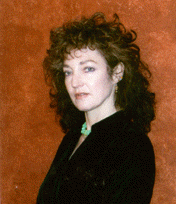La Cuenca de
Los Angeles
Y Otros Natural Disasters
Susana Chávez-Silverman
(University of Wisconsin)

In La Cuenca de Los Angeles we get the story of Chávez-Silverman's life from 1982 to 2009, via email and letters and diaries, filled with her loves and losses and thoughts and meanderings and surprises, all presented in a definitely strange language mix. For instance, there is in 2008 a road trip from the Santa Clara Valley to San Francisco, filled with a sudden burst of love for all the weirdos taking the same trip in their funny getups:
- Oh, those lion-colored hills de ambos lados de la 280N make me weep, ecstatically, con su belleza. Y hasta comencé a sentir un odd, grudging, nostalgic fondness por estos ridículos, sketchy, erratic NoCal conductores. Las asiáticas dolled up to the nines al volante de sus Mercs y Lexi, con sus trendy, retro bubble peinados and even bigger bubble designer gafas de sol. Damn, patrás a los '80s, no shit. Los Corvette-wielding, slide right up on your nalga, dot-com hotdoggers.
For those of us who are crazy about all things good and bad on both sides de La Frontera, that tortured land de agón, el centro de ambición y suffering, that fence-crossed, migra-pegada, sol- and soul-blistering desierto: for pochos like us, La Cuenca will be the ticket. Susana Chávez-Silverman's writing is designed for those of us with this star-crossed affection for the two languages, the two cultures, the two sides of the same coin. Chancing onto La Cuenca for me turned into a far-out, no ... a güey-out treat.
Her tale is a bit of a caminito flojo, and I don't see it as being all that different from los cuentos of so many of us who've had to straddle la frontera. On both sides, there are loves gone wrong, worries about aging, los narco-locos, along with fights con los cholos, going nuts, mis-adventures in the mountains (and in bed), dodging those who think they own the law (and those who think they own the land). Here, it's all told from the perspective of an articulate "white-skinned, Jewish brown Mexi-girl" whose "skin could not be read 'properly.'"
When she finds herself in another shape-shifting frontera border land --- South Africa (her then-love being a mining engineer named Howard) ---
- para que los Afrikaners y los ingleses no me pensaran uno de ellos, I kept myself apart: insular yet achingly lonely 24/7, angry, accusatory, and aloof. My own private apartheid del corazón.
Much of the fun of Cuenca comes from the bilingual puns, mots that work for those of us who have at least a smattering of both Spanish de la calle and workaday English. For instance there is the Spanish diaeresis (or trema) ... a diacritical mark that falls over the "u" after a "g" (Mötley Crüe fans call them "röck döts"). One finds these in Spanish words like "vergüenza" --- shame --- or "güey," pronounced "way." (It was originally and literally spelled "büey [literally, a toro or bull] ... but in La Cuenca it is used as "anygüey" or, eek, "¡No güey!")
This is typical in Susana-lit, blended smartly with bilingual hip-hop: "Me tinca" or "bien scraggly" or "one false move and eres tostada." A poignant momento has her writing that living with her teen-age son was "like having un enemigo" in the house,
- Joey and I. I was always so proud --- hasta smug --- about our closeness. Pues parece death grip now.
"Yeah, locked in a death dance con alguien que es, at the same time, as remote and impassive as the moon."
Chávez-Silverman is no lightweight. She's not only been all around the world, and all over the United States, her Cuenca is literate --- loaded with references to writers like Bolaño and Faulkner and Derrida and Lacan and Proust and Dante and even bubble-heads like W. H. Hudson and Jackson Brown and Al Pacino. The charm is not only the language, and the easy fun of puns, but the amor de la vida that fills her with anxiety attacks ("o anguhtia, como dicen en Argentina"), coupled with sudden vulnerabilities, like when the pods of a bottlebrush plant bring her tears because her mother used them for Christmas decorations. Then there's an unsettling conviction, bien loco, that a stroll in the hills above Saratoga (she's at the Montalvo writers' colony) might be interrupted by the attack of a cougar ... which haven't been seen in the area for years. It's the passion for words and life and passion that rules Cuenca --- even though she thinks it's more celestial: "Aires sun en la fourth house, ruled by hermetic Cancer."
These diverse passions --- trees, men, perfume, astral signs, chronic panic attacks, an all-abiding love for friends and the sounds of the streets of San Francisco, all make her so endearing. After the alarums and diversions, it is these passions that drive her story ... drive her ... make it hard for those of us on either side of the border to ever be able to forget her y su poder.
My edition of La Cuenca has an "Afterword" ... a rather loopy explanation of something known as "Spanglish" by un dweeb out of Occidental College.
I assume this message was tacked on to give courage to those high-school students who couldn't figure out for themselves what he calls ... ¡ay mamacita! ... the "intrasentential code-switching" in La Cuenca.
Being suddenly dumped into this Afterword after Chávez-Silverman's final chapter is an unpleasant shock después de the author's wonderful word-play.
Might we suggest that this malformed appendix be exorcised from future editions? It adds nothing to Susana's charismatic performance; in fact --- as Lord Byron would phrase it --- the explanation needs its own explanation. It certainly detracts from the sense of fun we've had up to this point.
As my friends en la frontera would exclaim, in their much more precise borderland language: "Esa chingadera no vale verga."